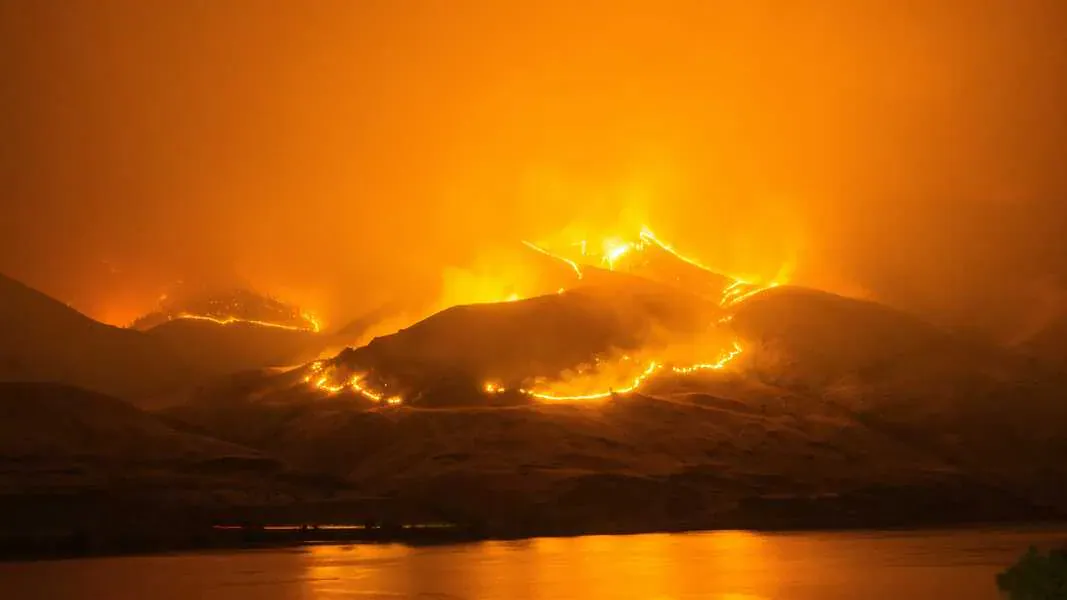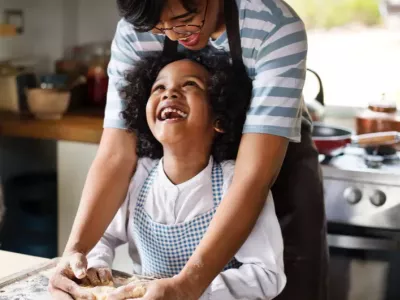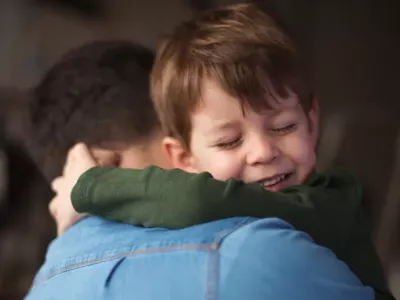Coping With Natural Disasters

EXTREME WEATHER WARNING…AGAIN!
By Dr Catherine Lee
Parents in Canada often love the differences between the four seasons. Many celebrate ways to adjust to extreme conditions, teaching children to embrace biting cold, sweltering heat and all the in-betweens.
We build family memories of playing in snow, watching in awe as the first shoots of spring emerge from frozen ground, cooling off in the summer, and crunching through fallen leaves. Adapting to the weather is almost part of Canadian identity. We reach out to newcomer families, helping them to ensure they have the right clothes and equipment for Canada’s varied seasons.
As global weather patterns are changing, we are facing more unpredictable extreme weather. Our beloved activities may be disrupted as there’s not enough snow for some winter festivals. Schools may be closed due to floods or power outages, outside play and camping postponed due to fires and smoke, and there may be hazardous driving due to high winds that bring down trees.
Increasing numbers of families are evacuated from their homes when things are too dangerous. As some families are still re-building their lives after the weather-related challenges of 2023, many others are wondering about the extreme weather they may face in the months and years to come. Here are some ideas and strategies to help.
HOW CAN EXTREME WEATHER EVENTS AFFECT US?
Strong feelings are normal when we live through extreme weather events. We may also be affected by warnings that bad things might happen. No matter our age, we can all feel fear, loss, anger, and anxiety. Sometimes we’re good at putting our energies into handling the immediate crisis then find we’re tired, moody, and irritable when things have settled down a bit.
WHAT ABOUT CHILDREN AND TEENS?
Young people’s reactions to extreme weather events vary according to their age, the danger to which they are exposed, and their previous experiences with disasters. For better or for worse, they often take their cues from how the important adults in their lives react. They are attentive to, and affected by, their parents’ reactions. Around an extreme weather event such as a wildfire or flood, children may slip back to behave as they did when they were younger. They may be much more reactive, clingier, and less cooperative, needing help with activities they usually handle on their own. It may be tougher for them to concentrate, and their sleep may be disturbed.
HOW CAN PARENTS AND CARERS HELP?
The first step is looking after yourself. Try to keep up the basics − eating and sleeping. Make sure you have moments to take a break, even if it’s just to take a few deep breaths or to text a friend. The second is to be gentle towards yourself − to recognize that you’re allowed to make mistakes, be short-tempered, and have a tough time planning. If you make sure you are looking after yourself, you’ll be in in a good position to help your children by:
- Trying to find a balance in seeking updates, so that you have the information you need but are not taking too much time absorbing and sharing upsetting stories.
- Setting a good example in talking about feelings. It’s okay to briefly let your children know you are tired or worried. However, it’s not helpful to lean on your children as your primary support.
- Attending to children’s feelings. Ask your child how they’re doing. Answer their questions honestly. (Although we can’t tell them when it’s going to be over or that it will never happen again, we can tell them we’re doing all we can to keep them safe). Keep these conversations brief. You don’t need to make the feelings go away, but you can show that you understand. You sound sad that you’ll miss the sleepover; I can see you’re frustrated that hockey is cancelled; You seem really worried about when we’ll get back to our house.
- Maintaining family rules and expectations. Although it may be tempting to expect less of children during a crisis, young people feel more secure when you expect them to help, to be kind in expressing their feelings, to share with others, and deal constructively with their frustrations. When you notice your children doing this, be sure to let them know you appreciate it. By noticing and celebrating these ‘bounce-back’ moments when your child gets through a tough situation, you help them develop emotional resilience: You were brave to tell me how you’re feeling; It’s great to see you helping your sister; I love that you found a different activity…
HOW LONG DOES THIS GO ON?
For most adults and children, the extreme distress of immediate crisis tends to fade once they are able to get back to their normal routines. It does not go away completely and can be triggered or set off by images and stories of similar events, family events, and “anniversaries” of the crisis.
THE HEALING POWER OF ROUTINE
Extreme weather events disrupt our daily routines. Routines provide children with a sense of stability: they know what to expect and what is expected of them. Lack of routine in life can increase anxiety and stress for the whole family. Although it may not be possible to keep things exactly the same as before the extreme weather event, as soon as you can get into a pattern, you’ll help them relax and feel safer and more confident about the future. They will benefit from regular time with you, childcare or school, a variety of activities and calm bedtime rituals.
IF YOU NEED EXTRA SUPPORT
We all need help at some times in our lives. If the suggestions here all seem just too hard or if family members’ distress is not fading after a few weeks, there are additional supports available.
Check out local Triple P services available, including Fear-Less Triple P - a program that takes a family approach to becoming emotionally resilient managing anxiety in ourselves and in our children.

